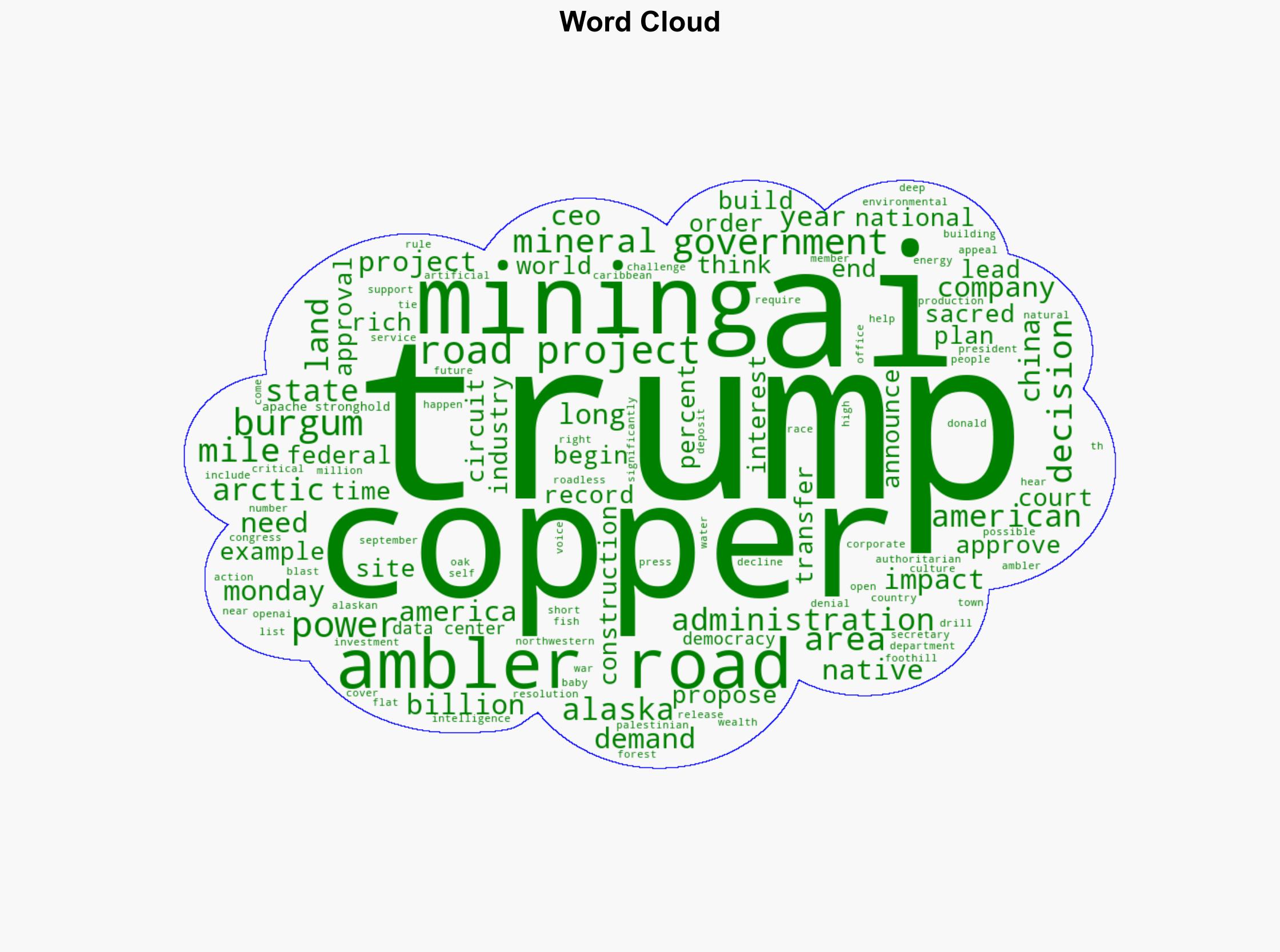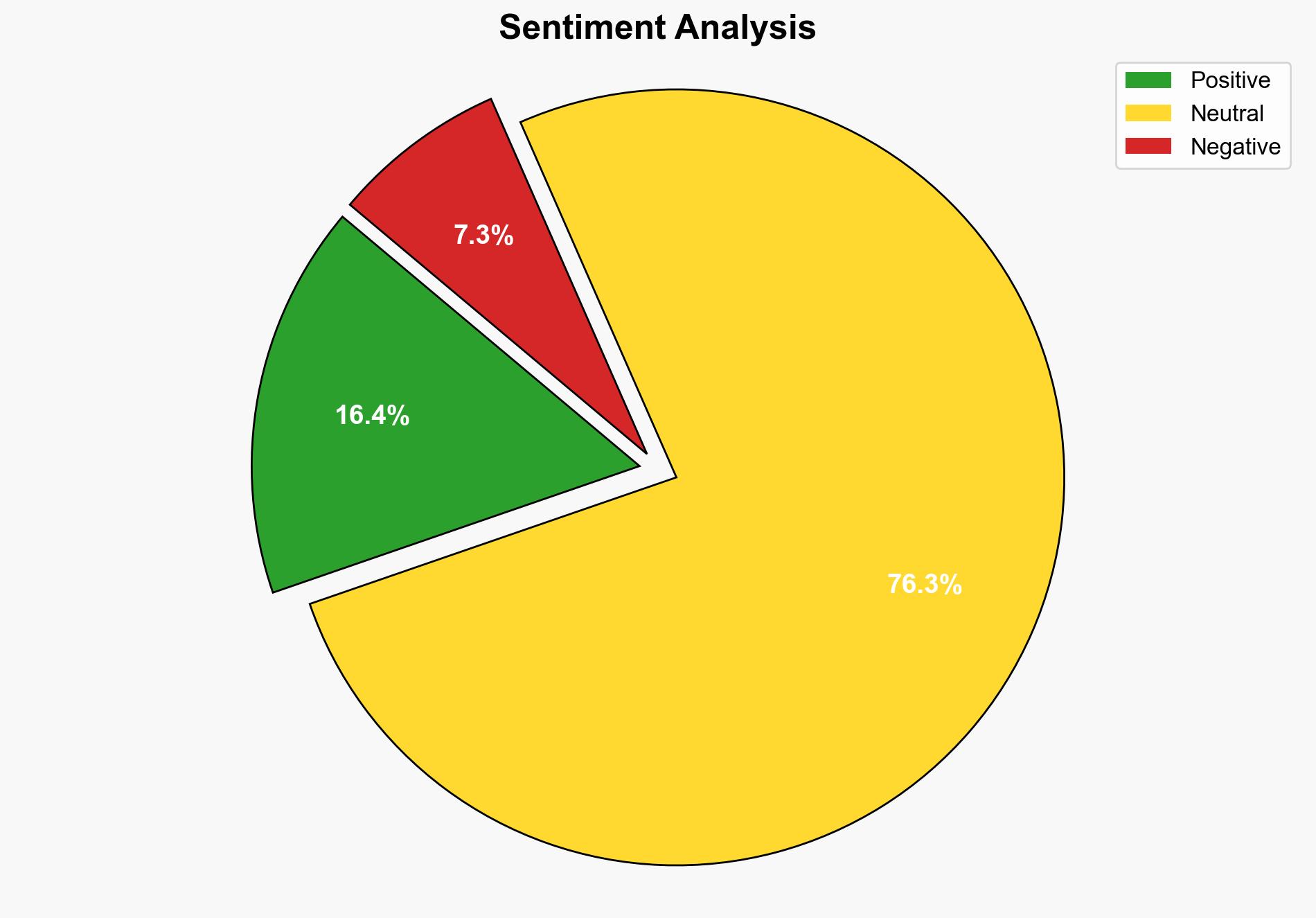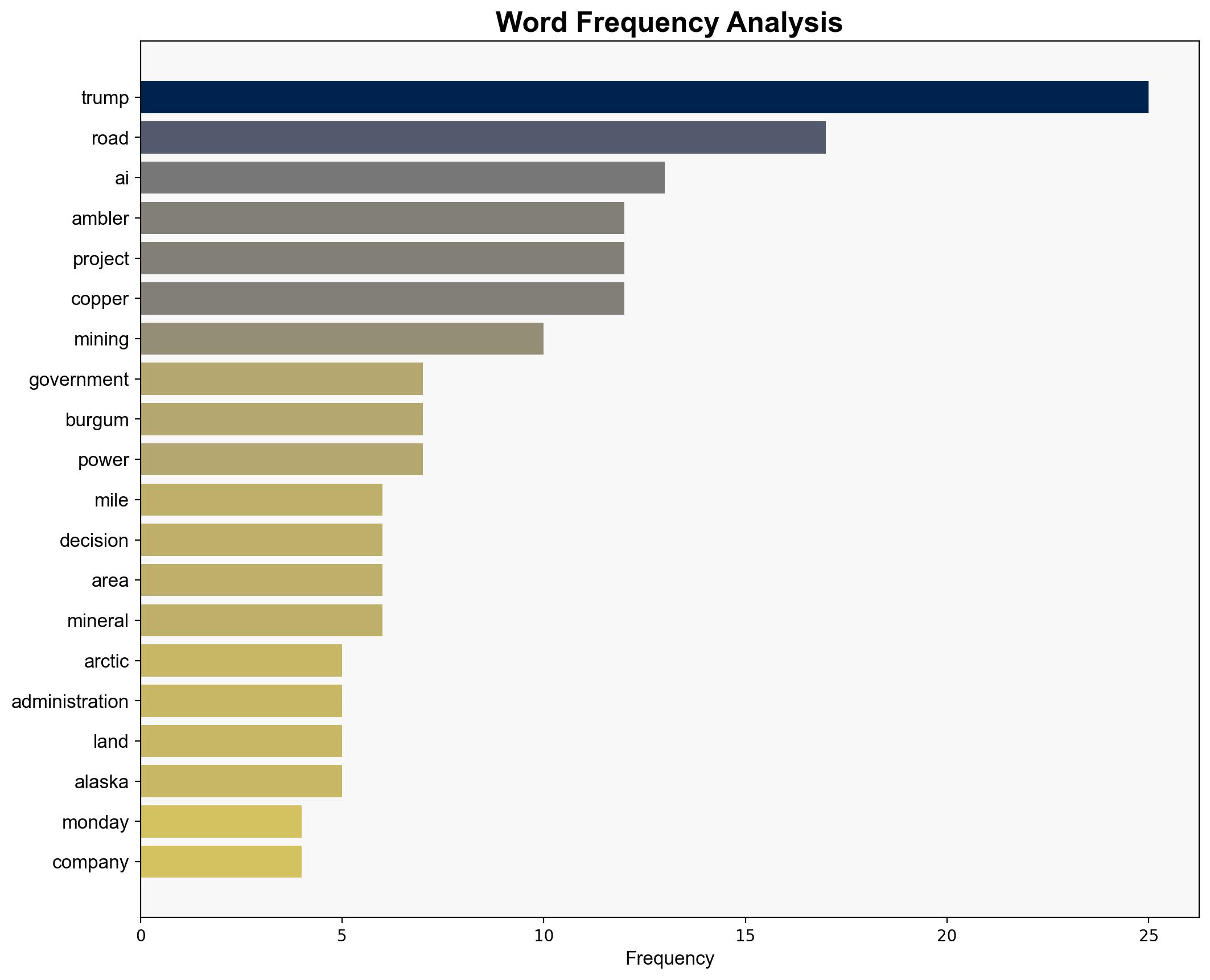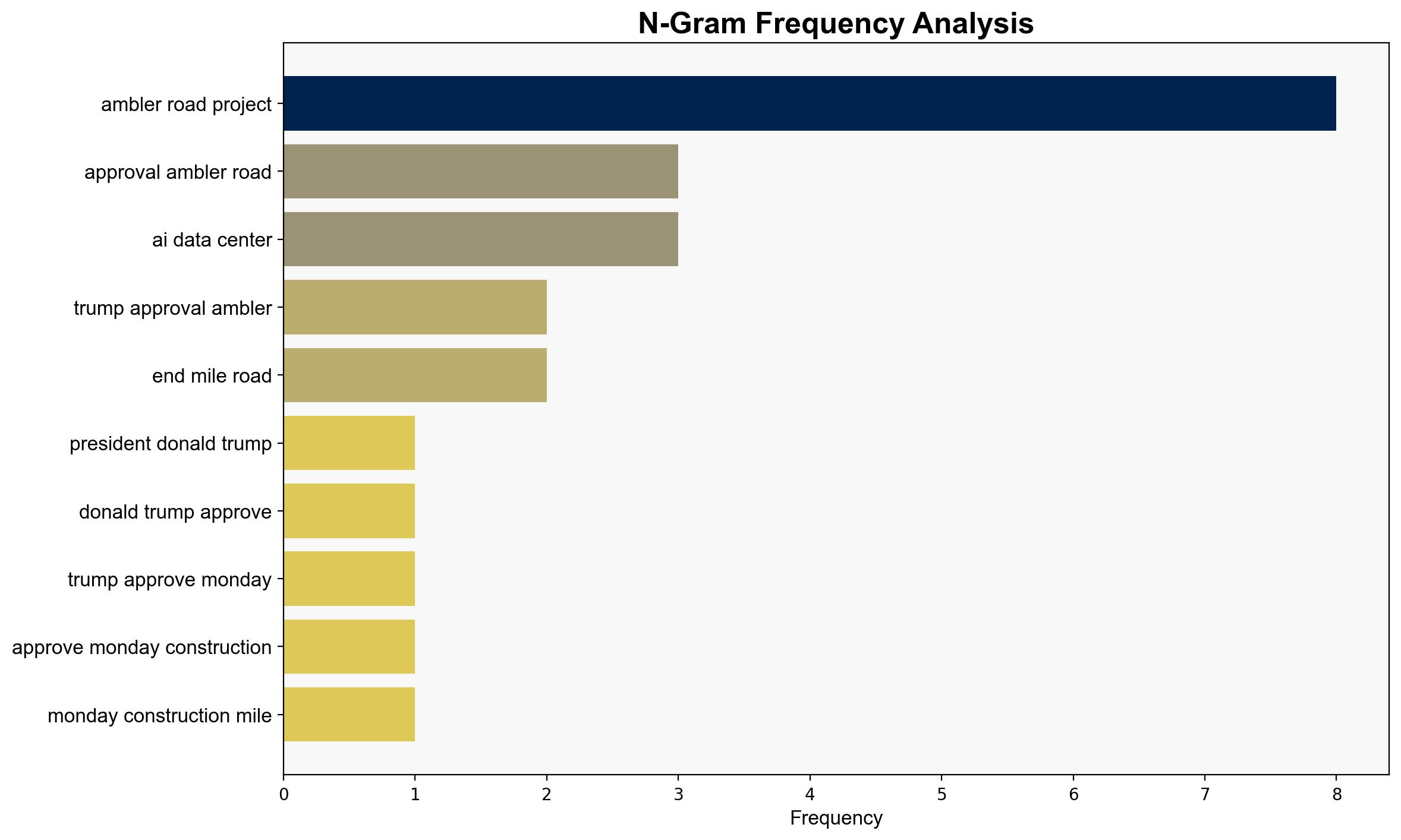Trump Sacrifices Alaska Wilderness to Help AI Companies – The Intercept
Published on: 2025-10-08
Intelligence Report: Trump Sacrifices Alaska Wilderness to Help AI Companies – The Intercept
1. BLUF (Bottom Line Up Front)
The decision to approve the Ambler Road project is primarily driven by strategic economic interests, specifically to support the AI industry by securing critical minerals. This hypothesis is supported by the alignment of the project with national priorities in AI development and competition with China. Confidence level: Moderate. Recommended action: Monitor the environmental impact and geopolitical responses, particularly from China, while assessing the long-term sustainability of such resource-driven strategies.
2. Competing Hypotheses
1. **Economic and Strategic Interests Hypothesis**: The approval of the Ambler Road project is primarily motivated by the need to secure critical minerals essential for AI development, positioning the U.S. competitively against China in the AI race.
2. **Corporate Influence Hypothesis**: The decision is heavily influenced by corporate interests prioritizing profit over environmental and indigenous concerns, with AI industry benefits being a secondary justification.
Using ACH 2.0, the Economic and Strategic Interests Hypothesis is better supported due to the explicit mention of AI and defense industry needs, and the strategic context of competition with China.
3. Key Assumptions and Red Flags
– **Assumptions**: It is assumed that the extraction of minerals will directly benefit the AI industry and that this benefit outweighs environmental and cultural costs.
– **Red Flags**: The potential underestimation of environmental impact and indigenous opposition could lead to significant backlash. The reliance on corporate claims about mineral necessity for AI raises questions about transparency and accountability.
– **Blind Spots**: The long-term environmental consequences and the potential for indigenous community resistance are not fully addressed.
4. Implications and Strategic Risks
– **Economic Risks**: Potential for increased domestic and international criticism could lead to regulatory and reputational risks for involved companies.
– **Geopolitical Risks**: China may perceive this as an escalation in the AI race, potentially leading to retaliatory measures or increased competition in securing global mineral resources.
– **Environmental Risks**: Significant ecological disruption could result in long-term damage to the Arctic ecosystem, affecting biodiversity and indigenous livelihoods.
5. Recommendations and Outlook
- Conduct a comprehensive environmental impact assessment to mitigate ecological risks.
- Engage with indigenous communities to address concerns and seek collaborative solutions.
- Scenario Projections:
- Best Case: Successful mineral extraction with minimal environmental impact and enhanced AI capabilities.
- Worst Case: Environmental degradation and indigenous unrest lead to project suspension and international criticism.
- Most Likely: Project proceeds with ongoing environmental and social challenges, but strategic mineral acquisition benefits AI development.
6. Key Individuals and Entities
– Donald Trump
– Doug Burgum
– Chris Wright
– Alaska Industrial Development and Export Authority
7. Thematic Tags
national security threats, environmental impact, corporate influence, AI development, geopolitical competition




